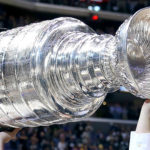Daily Fantasy Sports Can’t Win in New York
Daily Fantasy Sports Can’t Win in New York and Here Is Whyby Bernie Nicholls, Special to Hockey Pub
NEW YORK — Snowballing from an alleged insider trading scandal by a DraftKings employee, virtually overnight, daily fantasy sports (DFS) has become the hottest public policy issue. The state of Nevada concluded DFS is gambling under Nevada law, Preet Bharara and the Southern District of New York joined the action and more than three dozen lawsuits have been filed since October. The New York Post reported that the Department of Justice is getting ready to declare daily fantasy sports gambling despite not yet weighing in on the controversy. Jason Robins, CEO of DraftKings probably wants to take this one back, but the ship may have sailed.
And then there is New York. Attorney General Eric Schneiderman began his investigation into DFS with a cease-and-desist letter, then followed it up with injunction filings and a detailed memorandum of law. Emergency hearings are scheduled for Nov 25.
Why DFS Can’t Win in New York
Daily fantasy can’t win in New York for a simple reason. Proving daily fantasy requires skill is not sufficient in New York.
The daily fantasy industry is trying to turn the debate into a referendum between skill vs. gambling. Since fantasy requires skill, the argument goes, it is not gambling. It remains to be seen what the New York court will say on the relative importance of skill, but in the end it will not matter because of three powerful words in the New York law: future contingent event.
DFS’s whole argument around being skill-based, while potentially a life-saving defense in other states, is a moot point under the New York State law. The statutory construction is clearly disjunctive; prevailing either on the contest of chance or future contingent event argument is sufficient to prove gambling, provided that something of value is risked and something of value is received in the case of a win, both of which are fairly straightforward to establish in DFS – despite DFS arguing otherwise.
Somewhat surprisingly, the initial commentary by many lawyers did not touch on the ‘future contingent event’ language at all. Even the New York Attorney General himself didn’t really elaborate on it in his original cease-and-desist letter, perhaps as a matter of strategy. In addition, the term ‘future contingent event’ did not appear when DraftKings and FanDuel responded with lawsuits of their own, not even once. But then we began to see a shift in focus last week. It now seems to be the leading legal argument for the Attorney General. Fanduel has chosen to remain silent on the issue in its temporary restraining order (TRO), which was denied a few hours after it was filed. DraftKings at least made an attempt to address it in its TRO (which was also denied), by painting a picture that the word ‘event’ refers to daily fantasy sports itself, and not the sports games on the field. Sensing perhaps that this argument will not hold up, DraftKings also tried to hedge by basically equating ‘outcome’ to ‘event’ and also by distinguishing ‘outcome/event’ from ‘performance’. Neither of these arguments is persuasive. It is readily observed that the first and second arguments would likely imply that traditional sports betting and prop betting are legal under the New York law, respectively.
If there was ever any questions how the statutory definition of gambling should be read, the Practice Commentary answers them affirmatively.
One illustration of the definition of “gambling”, drawn from the commentaries of Judges Denzer and McQuillan, is the chess game between A and B, with A and B betting against each other and X and Y making a side bet. Despite chess being a game of skill, X and Y are gambling because the outcome depends on a future contingent event that neither has any control or influence over. The same is not true of A and B, who are pitting their skills against each other and thereby, have a material influence over the outcome: they, therefore, are not “gambling.” Thus the definition of gambling embraces not only a person who wagers or stakes something upon a game of chance but also one who wagers on ‘a future contingent event [whether involving chance or skill] not under his control or influence.’ “ Denzer and McQuillan, Practice Commentary, McKinney’s Penal Law 225.00, pp. 23 (1967)
First, it is pretty clear that the ‘event’ here is the chess game between A and B and not the side bet between X and Y. Second, arguing that an event consists of only the outcome, but not any subcomponents of the event, is somewhat disingenuous.
DraftKings’ argument is nothing more than trying to find something in the law that doesn’t exist. Its absurdity can also be seen by looking at one of its natural conclusions: If DFS hypothetically rolled out a fantasy offering where participants can form a team of chess players, risking money and receiving money if they win, and scoring was based on various moves by the chess players (as opposed to which chess player wins), it wouldn’t be gambling under New York law. Clearly, this doesn’t reconcile with the Practice Commentary.
FanDuel is silent on the issue. What it can’t do is claim that they have not heard this before. To its credit, Fortune raised this very same point in a recent interview with FanDuel’s CEO, Nigel Eccles. When Mr. Eccles gave some examples of games of skill, spelling bee, among others, Fortune pushed back:
But in those, you are the person competing, whereas in fantasy, you’re not the one on the field. Your product is more like if you bet on me to win the spelling bee (emphasis original).
Presto. Mr. Eccles responded that most skilled players can win predominantly. Once we realize that the existence of skill and the gambling characterization are not necessarily mutually exclusive, it is clear to see why this response does not work.
This is the real genius of the New York law. Provided that something of value is risked and something of value is received, lawmakers saw that gambling can happen in two ways. Having a game of chance or having a ‘future contingent event’ not under your control or influence. With that foresight, New York is bound to win this case.
How Will DFS Respond?
David Boies, arguably one of the top legal talents in the country was recently retained by DraftKings and he weighed in publicly on the matter. He also offered a preview of the case. He did not address any defense with respect to the ‘future contingent event’ language and instead tried to shift the conversation back to the skill v. chance argument, a battle which the New York Attorney General doesn’t need to win to prevail in court.
Mr. Boies also seems keen on highlighting the fact that FanDuel and DraftKings have been operating in the state of New York for years, potentially implying that since they haven’t been caught so far, it’s too late for action. It remains to be seen how far DraftKings will push this argument on November 25, but it doesn’t sound very promising, unless there is some really strange statute of limitations language for gambling offenses somewhere on the state books that Mr. Boies can pull out of his hat. The argument also defies common sense. By the same logic, cops shouldn’t pull over the cars that are going at 90 miles/hour when the speed limit is 65 and let them continue to be a threat to everybody else, if they haven’t been caught for five miles.
For fun, let’s also turn that argument upside down. It implies that illegal gambling operations can be advised that they should simply fly under the radar for as long as possible, and they will be able to make an argument later that “nobody said a thing.” It is correct that the amount wagered does not impact the characterization, as Mr. Boies noted, but it does impact when an enforcement agency decides to take action with the limited resources it has. This is simply a fact of life in the world of enforcement. The time between the birth of an illegal act and the timing of enforcement is not a validation of the business as a legitimate enterprise. In fact, illegal DFS gambling continues in New York even today (at least by DraftKings and a few others), and the Attorney General has no choice other than to intervene and enforce the law.
What About Traditional Fantasy Sports (TFS)?
TFS has some similarities to daily fantasy sports. Does that mean that TFS is also gambling?
It depends. If a TFS operator accepts money from individual participants, pools it, and returns cash back to the participants, after perhaps some administrative fees, everything in the statutory definition of gambling is met as far as the state of New York is concerned. Critically, the relative importance of skill in DFS vs. TFS, while certainly an interesting conversation, does not matter under the New York law. Something of value is risked, something of value is received, and there is a future contingent event that participants don’t control or influence.
But as the New York Attorney General correctly observed, there are two critical differences. First, in some cases, the TFS operator does simply collect the administration fee and the participant does not risk any money. Instead, a group of people, say co-workers in a company, create a side pool, and the top finishers collect the prizes participants initially agreed on. The “gambling” in this model happens on the side, as opposed to on a website of the TFS operator.
Second, the intent of the law matters. Even when the statutory definition of gambling is met, the stakes are low with TFS, and the primary purpose is social. Does that mean the treatment of TFS and DFS are somewhat inconsistent? Perhaps, but the harms of gambling should be considered when deciding how to enforce the laws. More skill, less skill, or similar skill, DFS has the potential to destroy lives. TFS doesn’t. This is precisely the reason why the UIGEA exempted TFS from the federal law in the first place, a law DFS heavily relied on to argue legality despite the fact that DFS was simply an unintended consequence of the law. DFS does not score well when it comes to the intent department. In addition, at least DraftKings seems to be breaking away from that position, presumably because it’s not convenient anymore. Now we know that DraftKings acknowledged that it was not even compliant with the letter of the law.
Conclusion
The name “fantasy”, perhaps not intentionally, but conveniently for DFS, hard-wired us to think it’s a self-contained game that happens in a vacuum, completely disconnected from reality. That is not so. While the athletes are playing a game of skill on the field, daily fantasy participants are risking something of value and receive something of value, and there is critical dependency on future contingent events in real life that are outside the participants’ control or influence.
The New York Attorney General provided the perfect summary.
“There is no winning or losing lineup, nor will there ever be, if the real games do not take place. Nor is it possible to identify the winning lineup without a tally of the final box scores. This is what it means for a wager to be contingent on a future event.” (emphasis original)
Lawmakers in New York had perfect foresight. They saw early on that gambling can take place in two different ways and codified that into law. The absolute best outcome for DFS in this case is getting some mileage on the skill vs. chance argument, which they can potentially leverage into other states. As far as New York is concerned, the odds of DFS ultimately prevailing is as likely as any one of us winning the million-dollar DFS grand prize this upcoming weekend. Theoretically possible, but it is a long shot.








Connect with Hockey Pub
Connect with us using social media.